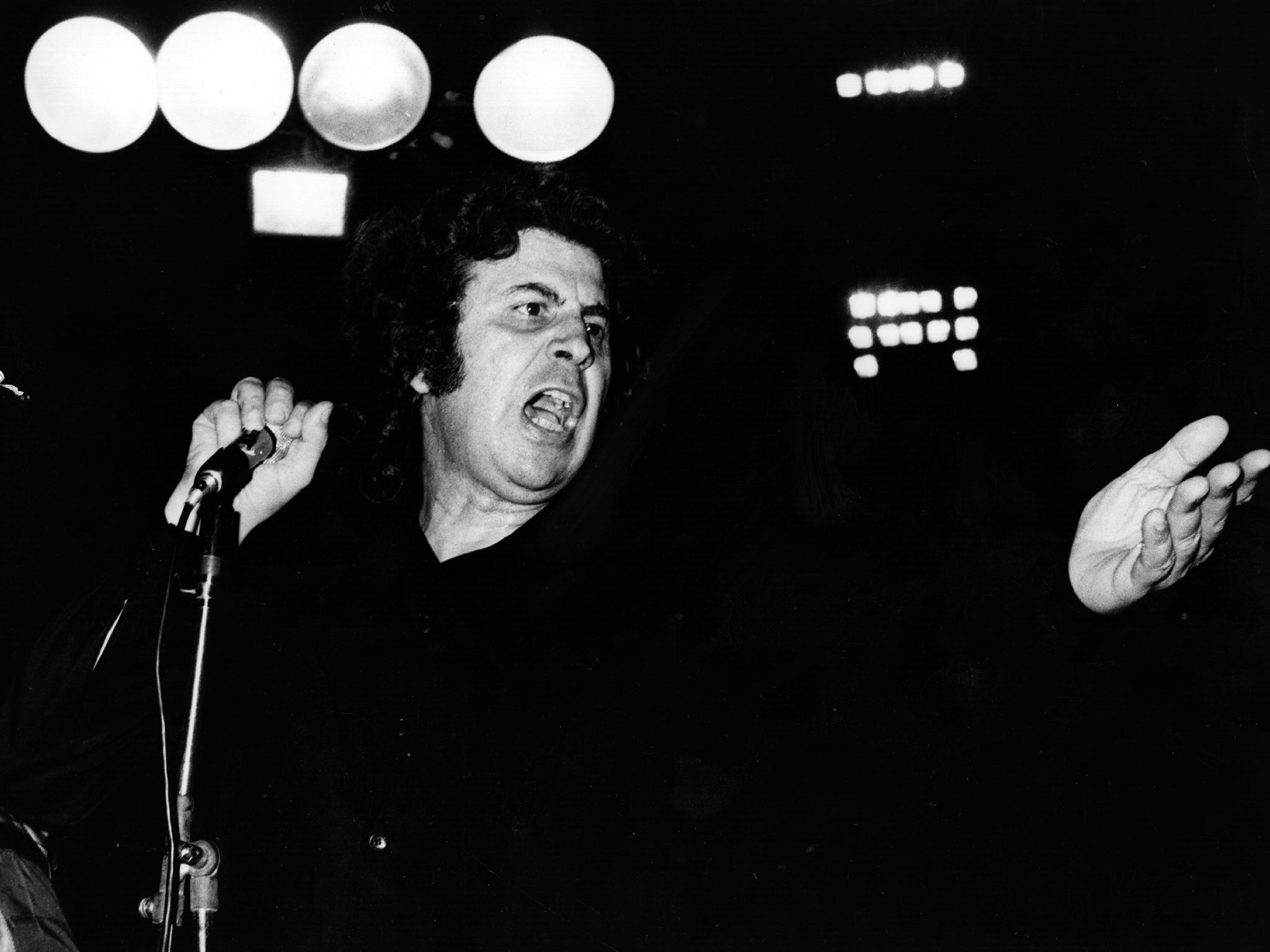Mikis Theodorakis: Greek composer who used music to rebel
The musician, known for his ‘Zorba’ and ‘Serpico’ film scores, was politically active after joining the Greek Resistance during the Second World War

Mikis Theodorakis, who has died aged 96, was a Greek composer of symphonies, cantatas, ballets and operas, but remembered worldwide for his Zorba the Greek and Serpico film scores.
He was also politically active throughout his life after joining the Greek resistance against the Axis powers during the Second World War, later becoming an MP.
When dictatorship arrived following a military coup in 1967, he was imprisoned as a political opponent of the new regime and spent several years in exile before the fascist junta collapsed in 1974 and he returned to his homeland. Later, the Marxist composer was back in the Hellenic parliament.
“Always, I have lived with two sounds – one political, one musical,” he once said.
Zorba the Greek, a 1964 comedy-drama starring Anthony Quinn as the peasant musician of the title whose lust for life changes Alan Bates’s uptight Englishman of Greek descent, put Theodorakis firmly on the international map.
The New York Times remarked that his score “rollicks and wails hauntingly”. Most memorable was “Zorba’s Dance”, played on the bouzouki and mandolin, the soundtrack to the pair dancing on a Cretan beach, arms outstretched and hands on each other’s shoulders. Its style, a Greek form of line dancing, became known as sirtaki.
As well as various versions of the tune appearing in the singles charts – Marcello Minerbi and his orchestra reached No 6 in Britain in 1965 – it went on to become a staple of piped music at Greek tavernas around the globe and Quinn even went through his steps again in guest appearances at Theodorakis’s concerts.
During the composer’s years of incarceration, Greek-French director Costa-Gavras approached him to write the score for his satirical thriller Z, an Oscar-winning, fictionalised account of a Greek anti-war politician’s assassination in 1963 that resonated in the new climate. The storyline was smuggled to Theodorakis, who suggested suitable past works of his to use.
Then, in 1973, came his soundtrack for Serpico, a film directed by Sidney Lumet and starring Al Pacino as a New York police officer going undercover to expose corruption in his own force.
Michael George Theodorakis was born on the Aegean island of Chios in 1925 to Aspasia (nee Poulakis), who fostered in him and his younger brother a love of Greek folk music, and Georgios Theodorakis, a lawyer.
He began composing as a child and, after writing his early choral works, gave his first concert aged 17.

At the same time, following Greece’s occupation by German and Italian forces, he joined ELAS, the Greek People’s Liberation Army, whose guerrillas mounted attacks on them.
Within two years, he was a captain and had met Myrto Altinoglou, a medical student and fellow member. They eventually married in 1953, after he had finished his music studies at the Athens and Paris conservatories.
Back in Greece in the early 1960s, he led a revolution in blending the country’s traditional folk music with the new language of political rebellion and defiance. He said his works were a result of European, Greek and Cretan musical influences.
Alongside a dozen symphonies, chamber music and other works, Theodorakis left his mark with anthems of resistance and political persecution.
In 1970, after three years of imprisonment following the military coup in Greece, international pressure – including protests from composer-conductor Leonard Bernstein and playwright Arthur Miller – led to Theodorakis being released and sent into exile in France, although his music was still banned in his home country.

Just months later, he was conducting the London Symphony at the Royal Albert Hall for a performance of his triumphant March of the Spirit, with lyrics from poetry by Angelos Sikelianos. It began four years of concerts around the world to raise funds in support of Greek democracy.
Later, Theodorakis’s Mauthausen Trilogy, a cycle of four arias, was a haunting elegy for those who died in the Holocaust. With lyrics based on the works of Greek poet Iakovos Kambanellis, who was imprisoned at the Mauthausen-Gusen concentration camp, it received its world premiere there in 1988.
Hymns were another outlet for his political flag-waving: “Hymn for the Socialist Movement in Venezuela”; “...for the Students”; “...of the French Socialist Party”; “of PLO”.
“Between 1950 and 1960, I composed exclusively symphonic music,” he reflected. “Between 1960 and 1980, only folk music. It is only since 1980 that I have renewed my endeavours to combine the two.”
One example was Zorba, the story of a Greek traveller who loves life and is adored by women, and the last of more than half a dozen ballet works he wrote.
At its 1988 premiere in Verona, he was so overwhelmed at seeing his name on banners alongside others of great Italian composers that he resolved to write operas dedicated to Verdi, Puccini and Bellini.
Medea (1991), Electra (1995) and Antigone (1998), which he described as “lyrical tragedies” about three ancient Greek figures, followed.
This body of work coincided with Theodorakis’s final term in the Hellenic parliament. He was first elected in 1964 as a member of the left-wing EDA and was later back for the KKE, the Greek communist party (1981-86).
Then, he switched to the centre-right New Democracy Party, first from 1989-90, then serving as a minister from 1990 to 1992 in a coalition government. He insisted he was still left-wing but had opposed the previous corrupt socialist government of Andreas Papandreou, whom he described as “intemperate and power-hungry”.
Theodorakis is survived by his wife and their son and daughter, Yorgos and Margarita.
Mikis Theodorakis, composer, born 29 July 1925, died 2 September 2021

